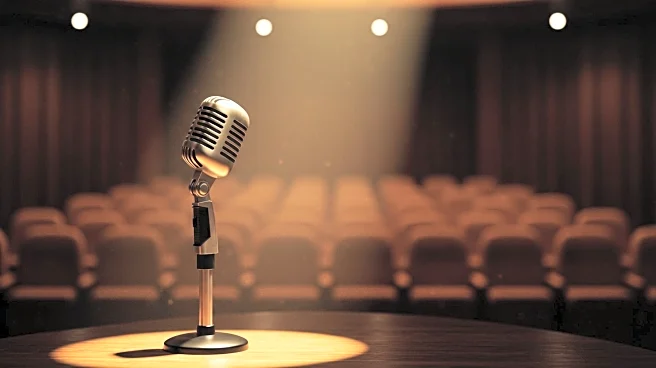What is the story about?
What's Happening?
Edward Sharpe and the Magnetic Zeros, a U.S. band known for their song 'Home,' have recently found themselves in the spotlight due to a viral clip from their NPR Tiny Desk concert. The clip, which showcased a less-than-stellar performance of 'Home,' led to widespread criticism on social media, with some users labeling it the 'worst song ever made.' Despite the backlash, the song has its defenders who appreciate its fun songwriting and simple romanticism. The debate has prompted Alex Ebert, the band's frontman, to address the controversy on Instagram, defending the song's quality and its impact on the folk pop genre.
Why It's Important?
The resurgence of interest in 'Home' highlights the enduring impact of music from the early 2010s and the power of social media in shaping public opinion. The song's renewed attention underscores the cultural significance of the folk pop wave that Edward Sharpe and the Magnetic Zeros helped popularize. This debate also reflects broader generational divides in musical taste and the subjective nature of artistic appreciation. The band's influence on other artists, such as Lumineers and Of Monsters and Men, further emphasizes their role in shaping the genre.
What's Next?
The ongoing discussion around 'Home' may lead to increased streaming and sales for Edward Sharpe and the Magnetic Zeros, as curiosity drives listeners to revisit the song. The band might capitalize on this renewed interest by releasing new material or planning performances that address the controversy. Additionally, the debate could spark further conversations about the evolution of folk pop and its place in contemporary music.
Beyond the Headlines
The controversy surrounding 'Home' raises questions about the criteria for judging music quality and the influence of nostalgia on musical preferences. It also highlights the role of social media in amplifying opinions and shaping cultural narratives. As the band navigates this renewed attention, they may explore the ethical implications of artistic criticism and the impact of digital platforms on their legacy.















